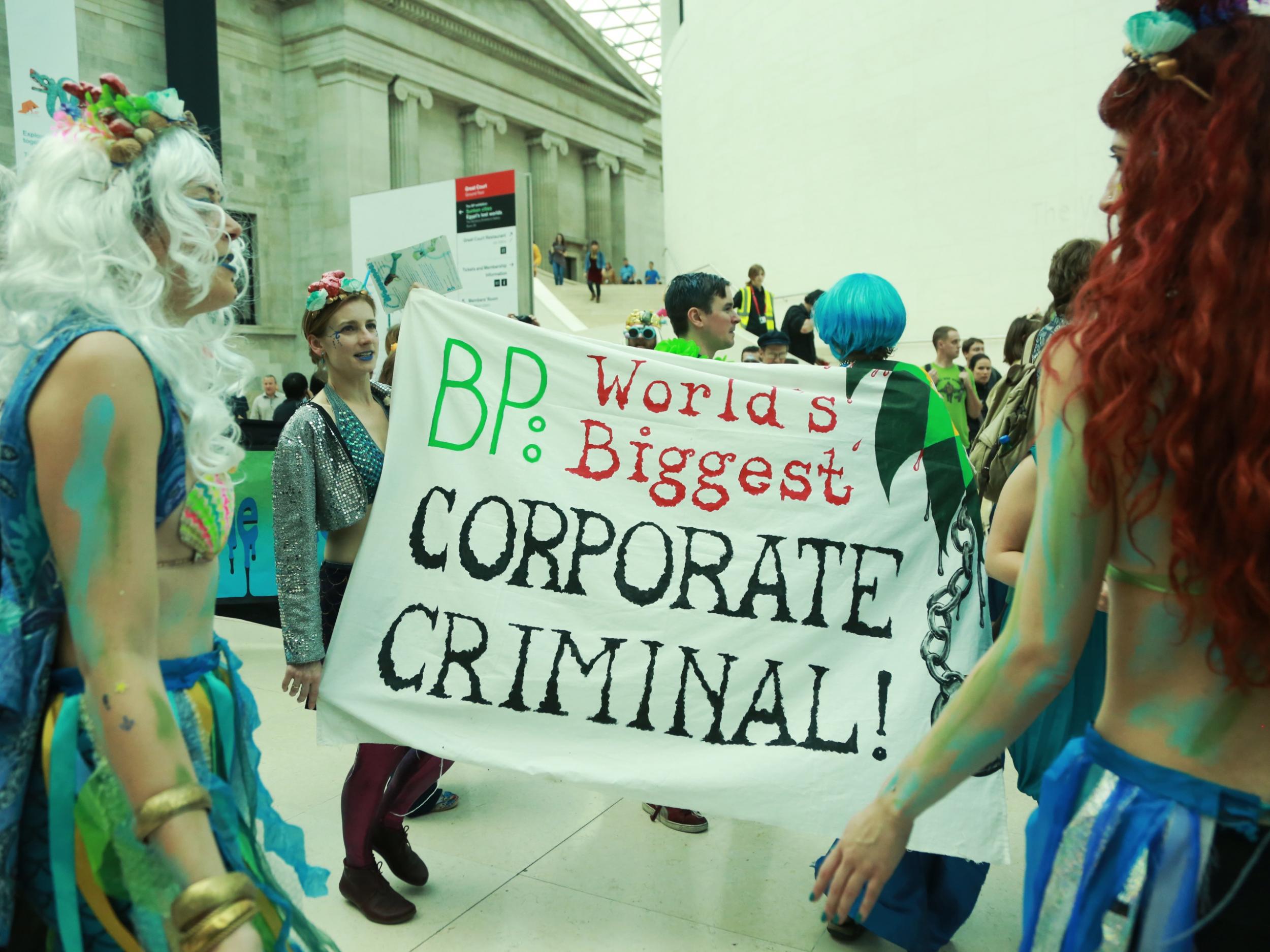British Museum broke own rules over BP sponsorship, campaigners say
Art Not Oil coalition claim failure to consult trustees makes deal with oil company 'illegitimate'

The British Museum has broken its own rules by not allowing trustees to help decide whether or not to renew a five-year sponsorship deal with BP, activists have claimed.
Art Not Oil, a coalition group of organisations campaigning against 'Big Oil' sponsorship in the arts, used a Freedom of Information request to discover that trustees were not part of the decision-making process, despite widespread opposition to the controversial deal from staff and members of the public.
The group said the disclosure called into question the legitimacy of the new sponsorship deal, which was announced in July.
In November 2015, campaigners said the former director of the British Museum Neil MacGregor outlined the institution’s official decision-making process in a letter to staff represented by the Public and Commercial Services Union.
“Any ethical questions which arise in the context of the Museum’s activities or sponsorships are discussed and decided by the Board of Trustees,” Mr MacGregor told the union.
Art Not Oil said the process Mr MacGregor detailed was not adhered to. Instead the decision to renew the sponsorship was made unilaterally by the new director Hartwig Fischer.
Because trustees were not consulted, Art Not Oil said the decision should be revisited by the museum, “incorporating a thorough and independent investigation into BP’s activities, including meaningful consultation with staff, museum-goers, experts and trustees”.
But a spokeswoman for the British Museum explicitly rejected all of Art Not Oil's allegations, saying they were confused about the comment by Mr MacGregor.
“We have governance procedures quite clearly laid out and when it comes to issues related to bringing money to the museum, trustees delegate to the director," she said.
"The director made the decision but trustees were informed.”
She described the museum's trustees as a “very highly respected group... there to safeguard the collection and reputation”.
The trustees were responsible for considering ethics, the spokeswoman said, but whether or not the sponsorship deal falls into this category “depends on the definition of ethical questions".
The museum had a longstanding relationship with BP, she said, so the decision to accept further sponsorship was “straightforward”.
“People have different views but BP are an organisation that have supported the museum for a long time,” she said.
“We are very mindful of the questions people are asking us, but for us it’s about being able to put on an exhibition programme that has great public benefit. It’s not possible to do that without external support from businesses."
Art Not Oil, however, believes sponsorship by Big Oil companies is an ethical issue.
Jess Worth, from the group, said the British Museum appeared to have an "ethical black hole at its heart".
"If there had been proper ethical scrutiny, there’s no way BP’s sponsorship could have been renewed," she said.
"But without a dedicated ethics policy, an ethics committee or active oversight by its trustees, the director could overlook BP’s role as one of the world’s most destructive fossil fuel companies and ignore the damage it is doing to the museum’s reputation."
Art Not Oil believe Big Oil companies cultivate arts and culture sponsorship relationships "to help create a 'social licence to operate'."
They said this contributes to "the veneer of legitimacy that enables them to keep expanding operations at a time of climate crisis and to stifle demands for justice of those communities who live on the frontline of their destructive, polluting operations".
Some British Museum staff agree. Clara Paillard, president of the PCS union's culture sector, which represents many staff said that in March a survey found 62 per cent of British Museum employees thought oil sponsorship was not ethical.
"It is time for Big Oil to become persona non grata in our museums, just as tobacco companies are," she said.
"Climate change is happening now and these fossil fuel corporations shouldn't be given a license to build a reputation as philanthropists rather than the climate-wreckers they are."
She added the failure to adhere to the procedure Mr MacGregor promised was "very disappointing".
In July, BP announced a new 5-year sponsorship deal with the National Portrait Gallery, the Royal Opera House and the Royal Shakespeare Company, in addition to the British Museum, but the oil company reduced its total spend from £10m to £7.5m.
Earlier this year, it was announced that BP would no longer sponsor the Tate or the Edinburgh International Festival after 26 years and 36 years respectively, following a sustained campaign.
Join our commenting forum
Join thought-provoking conversations, follow other Independent readers and see their replies
Comments